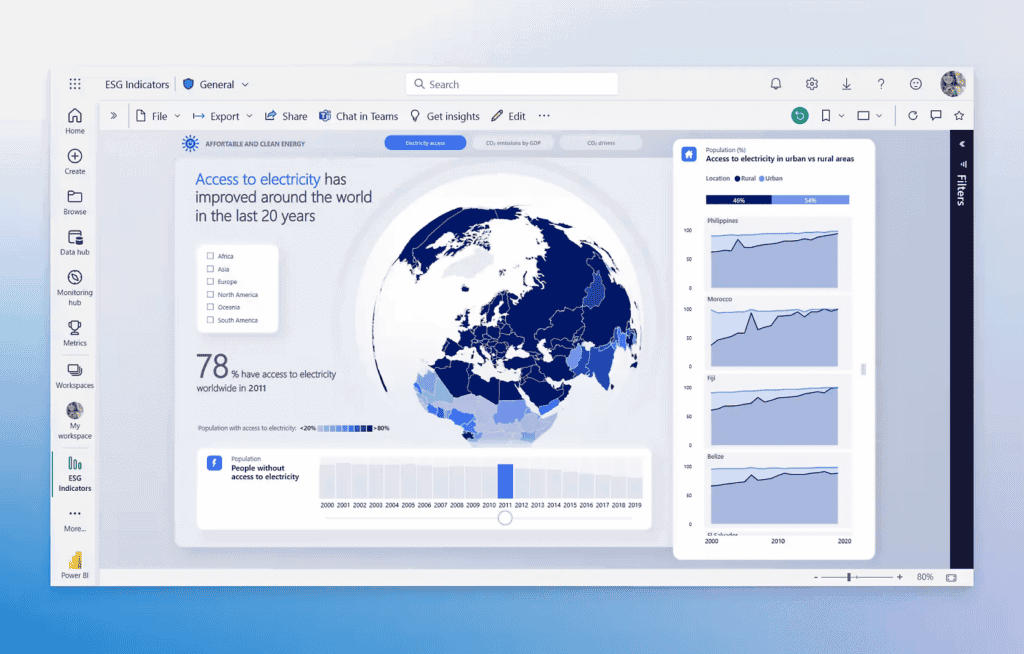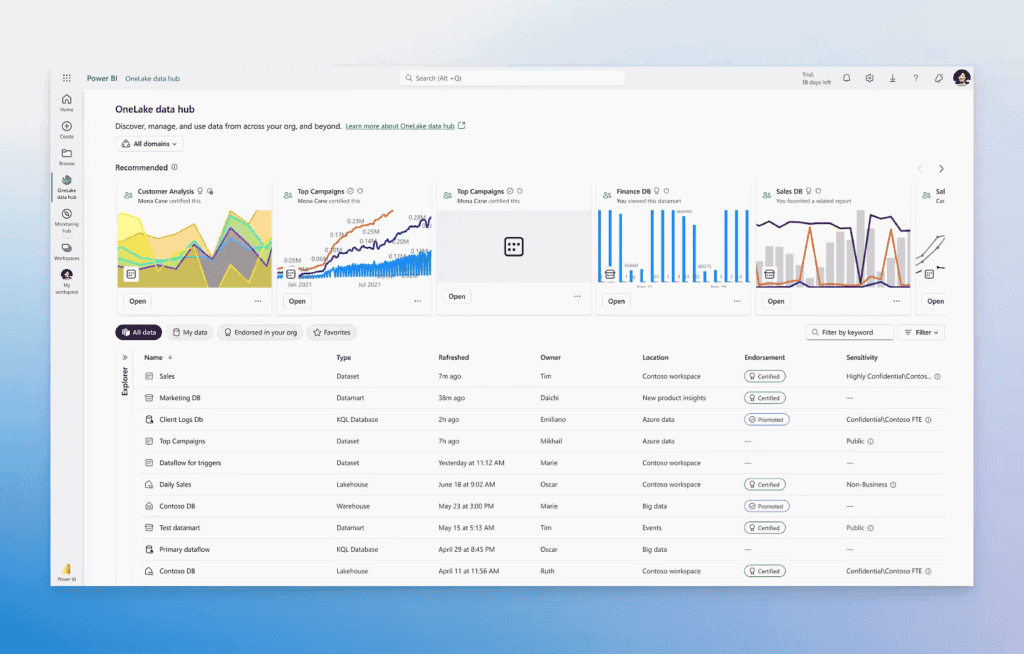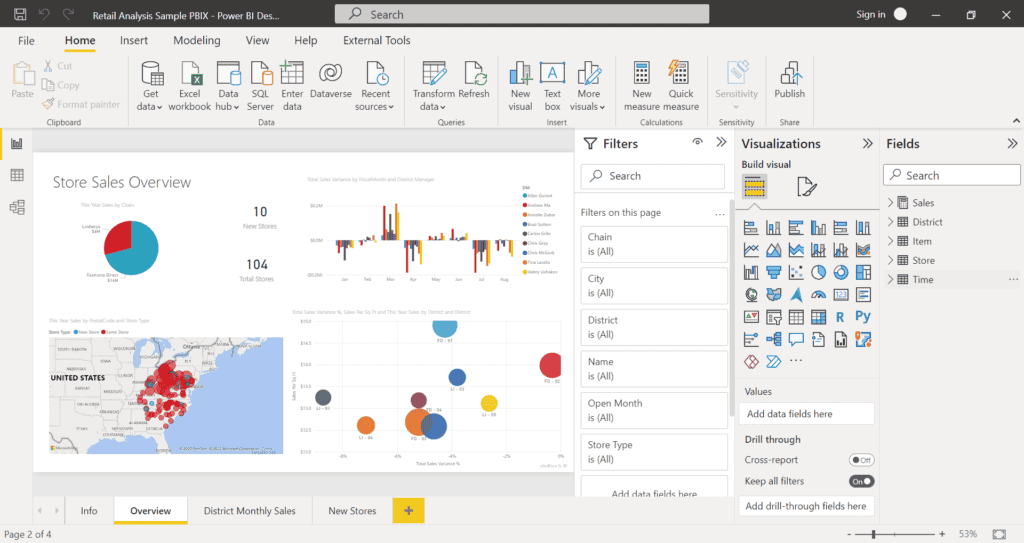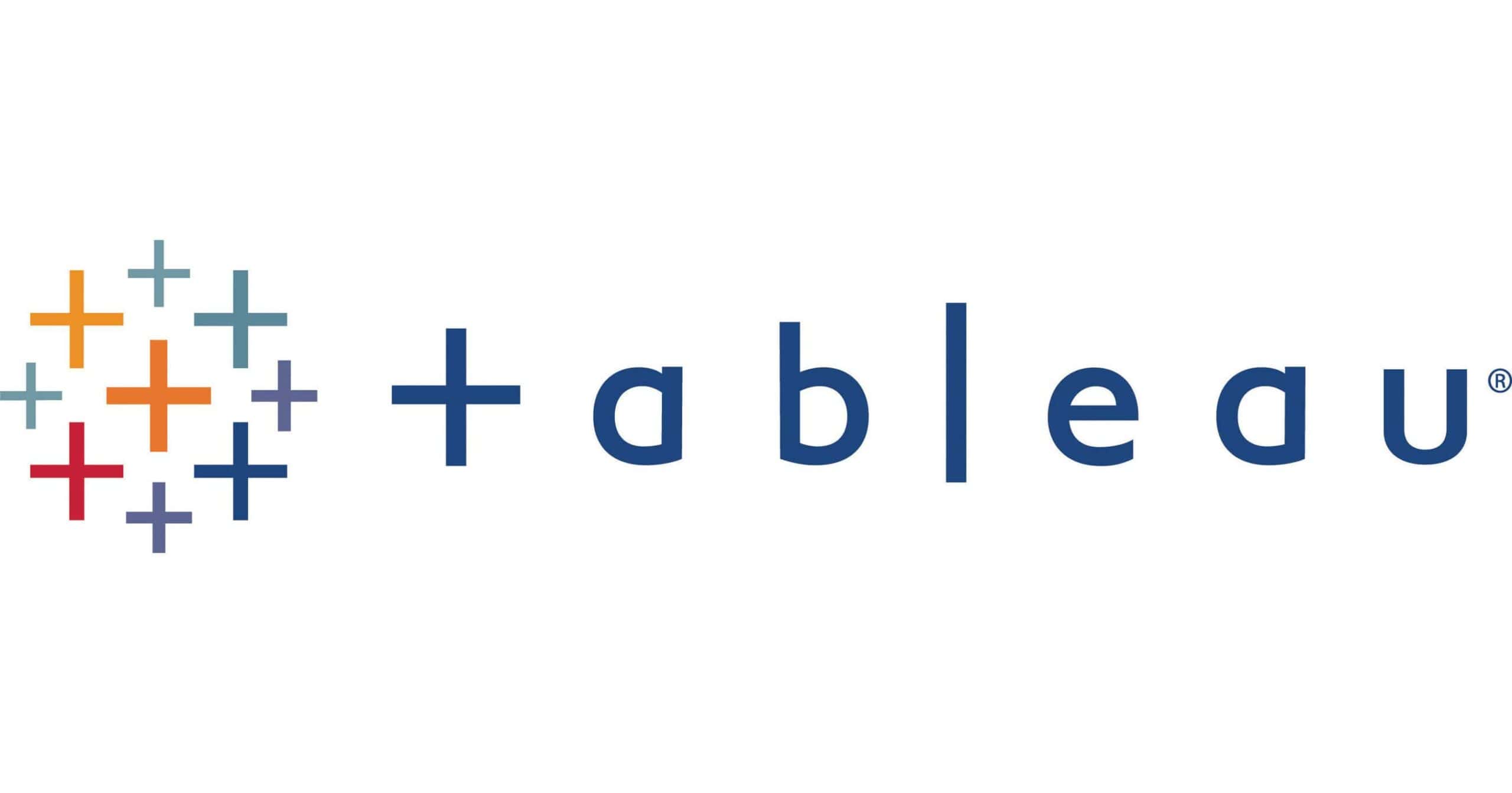Business analytics tools help companies use data to make smart decisions. These tools collect, analyze, and display information in easy-to-understand ways. They can identify trends and recommend ways to improve business. In today’s data-driven world, business analytics tools are necessary for organizations that want to stay competitive. These powerful software solutions enable businesses to make informed decisions, recognize trends, and uncover valuable insights hidden in their data. With many options available, choosing the right tool can be overwhelming.
Power BI, Tableau, and SAS BA are among the top business analytics tools in 2025. Users can create charts, graphs, and reports from their data using these tools. They can connect to various data sources and update in real-time. This ensures that businesses always have the latest information to work with. Both small and large companies utilize these tools, which can assist with sales, customer service, and more. By using business analytics tools, companies can stay ahead of their competition and grow faster.
This article examines the top business analytics software options, highlighting their key strengths and ideal uses to help you decide for your organization.

Making Sense of Your Data: A Deep Dive into Business Analytics Tools
What Makes a Good Business Analytics Tool?
Effective tools go beyond data visualization. They simplify complex information, enabling data-driven decisions and spotting trends. These tools cater to diverse users, from beginners to data scientists. They integrate with existing systems for a smooth workflow.
Top Business Analytics Software Options
| Tool | Key Strengths | Ideal For |
|---|---|---|
| Tableau | Interactive dashboards, user-friendly interface, strong data visualization | Organizations of all sizes seeking powerful visualization and exploration |
| Microsoft Power BI | Integration with Microsoft products, robust features, natural language processing | Businesses invested in the Microsoft ecosystem, wanting a comprehensive solution |
| Qlik Sense | Associative data model, self-service analytics, AI-powered insights | Organizations valuing flexibility and data exploration, seeking AI-driven analysis |
| Looker | Customizable data models, collaborative features, SQL-based interface | Data-savvy teams needing flexibility and customization, those comfortable with SQL |
| ThoughtSpot | Search-driven analytics, natural language processing, AI-powered insights | Business users wanting quick answers from data, non-technical users seeking insights |
Choosing the Right Tool for Your Business
Consider your budget, specific needs, and user skill levels. Some tools excel at visualization, while others focus on AI-driven insights or data exploration. Evaluate free trials to determine the best fit for your organization’s unique requirements.

Key Takeaways
- Business analytics tools help companies use data to make better decisions
- Popular tools include Power BI, Tableau, and SAS BA
- These tools can benefit companies of all sizes in many areas of business
Understanding Business Analytics Tools
Business analytics tools help companies make smart choices using data. These tools look at past info, find trends, and guess what might happen next.
The Role of Data in Business Analytics
Data is key in business analytics. It comes from many places like sales records and customer info. Tools clean up this data and make it easy to use. They turn numbers into charts and graphs. This helps people spot important facts quickly.
Good data leads to better choices. For example, a store might use past sales data to know what products to stock. Or a bank could look at spending habits to offer the right loans. Data can also show if a new idea is working well.
Types of Business Analytics
There are different kinds of business analytics. Descriptive analytics looks at what happened in the past. It might show sales trends or customer behavior. Diagnostic analytics asks why things happened. It helps find the reasons behind good or bad results.
Predictive analytics tries to guess what will happen next. It uses past data to make forecasts. This can help plan for the future. Prescriptive analytics suggests what to do. It gives advice on the best steps to take.
Each type of analytics helps in its own way. Companies often use more than one type to get a full picture. This lets them make choices based on facts, not just gut feelings.
Exploring Business Analytics Tools and Software
Business analytics tools help companies make smart choices using data. These tools range from basic software to advanced platforms that handle complex tasks.
Enterprise Resource Planning and Customer Relationship Management Systems
ERP systems combine many business functions into one package. They track things like inventory, orders, and finances. This helps companies run smoothly and save time.
CRM systems focus on customer data. They store contact info, track sales, and manage service requests. Good CRM tools can boost sales and make customers happier.
Both ERP and CRM systems now often use cloud tech. This lets workers access data from anywhere. It also makes updates easier and can cut costs.

Data Visualization and Business Intelligence Platforms
These tools turn raw data into charts and graphs. This makes it easier to spot trends and patterns. Popular options include Tableau, Power BI, and Qlik Sense.
Many of these platforms offer:
- Interactive dashboards
- Real-time data updates
- Collaboration features
- Mobile access
Some tools like Sisense and Domo focus on self-service. This means non-tech staff can make their own reports without IT help.
Advanced Analytical Tools and Future Trends
New tech is changing business analytics. AI and machine learning can find hidden patterns in big data sets. They can also predict future trends.
Natural language processing is making tools easier to use. Users can ask questions in plain English and get answers fast.
Cloud-based tools are becoming more common. They offer:
- Easy scaling
- Lower upfront costs
- Automatic updates
Embedded analytics is a growing trend. It puts data tools right inside other business apps. This helps workers make quick decisions based on fresh data.
Frequently Asked Questions
Business analytics tools help companies analyze data and gain insights. They come in different types for various needs and budgets.
What are the most popular types of business analysis tools currently in use?
Data visualization tools like Tableau and Power BI are widely used. These let users create charts and graphs from data. Reporting tools such as Crystal Reports help make business reports. Statistical analysis software like SAS and SPSS is common for complex data analysis.
Which business analytics tools are considered the best for deriving insights from large datasets?
For big data, tools like Hadoop and Spark work well. They can process huge amounts of data quickly. Machine learning platforms such as TensorFlow help find patterns in data. Cloud-based tools like Google BigQuery allow analysis of massive datasets.
Can you name some free business analytics tools available to small businesses?
Google Analytics is a free tool for website data. It tracks visitor behavior and traffic sources. Apache OpenOffice has a free spreadsheet program for basic data analysis. R is a free statistical software used by many analysts.
How do data analytics tools differ from business analytics tools?
Data analytics tools focus on raw data processing. They clean and organize data for analysis. Business analytics tools use this processed data to solve business problems. They often include features for reporting and decision-making.
What are the leading business analytics techniques for efficient data analysis?
Regression analysis helps predict future trends based on past data. Cluster analysis groups similar data points together. Time series analysis looks at data over time to spot patterns. Text analysis examines written content for insights.
Among the various analytics tools available, which ones are predominantly used by large enterprises?
Large companies often use SAP BusinessObjects for reporting. Oracle Business Intelligence is another top choice for big firms. IBM Cognos Analytics offers advanced AI-powered insights. Salesforce Einstein Analytics is popular for customer data analysis.







